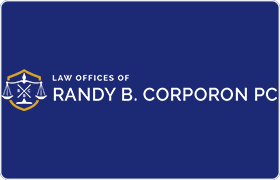 Englewood Child Custody Lawyers, Colorado
Englewood Child Custody Lawyers, Colorado
Sponsored Law Firm
-
 x
x

Click For More Info:
-
Law Offices of Randy B. Corporon PC
2821 S. Parker Road Suite 555 Aurora, CO 80014» view mapDivorce & Family Law Clients First, Excellence Always!
You owe it to yourself and your loved ones to be represented by an experienced, high-quality attorney, with a track record of proven success.
800-976-8531
Includes: Guardianships & Conservatorships, Custody & Visitation
Sponsored Lawyers
1-10 of 28 matches
Family Law, Divorce, Child Custody, Child Support
Fred A. Dunsing attended law school after employment in the E&C, software, and manufacturing industries. He attended school at night while working full-time during the day. Even though he attended school at night, he managed to gain a significant amount of client representation and trial experience through the Student Law Office operated by the University of Denver and sanctioned under Colorado law.{newline}{newline}After graduation, Fred practiced mainly in the areas of business organizations, criminal defense, civil litigation and family law. Fred currently maintains a litigation practice and limits that practice to family law, which he has done for nearly 20 years. Fred’s family law practice includes the areas of divorce, legal separation, annulments, child custody disputes, property settlements, post-decree modifications, paternity and visitation, grandparent rights, and (pre)marital agreements. Fred is rated “AV-Preeminent” by Martindale Hubbell, which is the highest rating an attorney can receive.{newline}{newline}Fred strives to find cost-effective solutions for clients during negotiations, in litigation, or on appeal. It is his goal to provide personal service at a reasonable cost, and Fred most enjoys the opportunity to help Colorado families through difficult times.
(more)Family Law, Bankruptcy, Divorce, Child Custody, Collection
John has been practicing law in Colorado since 1998. He is the founding member of Eckelberry Law Firm, established in 2006, in charge of the family law and bankruptcy practice for the firm. During his almost 20 years of practice, John has helped hundred of clients achieve personal and financial “fresh starts,” while developing short- and long-term life plans.
(more)Divorce & Family Law, Divorce, Family Law, Child Custody, Child Support
Welcome to the law firm of Adam W.G. Moore. I am a solo practitioner providing strong, solid legal representation in all Colorado divorce and family law matters, to those who need it. I grew up in a family of attorneys. My grandfather, Carlos Cadena, argued several times before the United States Supreme Court and my mother, Mary Elizabeth Galvan, is a prominent attorney in Laramie, Wyoming. After graduating from the University of Wyoming College of Law, I worked for a large downtown Denver family law firm, where I gained experience handling divorces and marital estates comprising millions of dollars in assets. I learned early on that Family law requires a special touch. I use a balanced approach, treading lightly tender emotions, but pressing aggressively when necessary. From experience, I know when to compromise and when to press forward in pursuit of my clients’ interests. From your free initial consultation to the final disposition of your case, I, not a paralegal or assistant, will personally communicate with you and handle your case. You will never be treated as a name in a sea of other clients. I strive to give clients the personalized and responsive service they need. I will take the time to understand your issues and explain your rights.
(more)Family Law, Divorce, Divorce & Family Law, Child Custody
Katherine Jane Jenkins is a long-established business, founded in 2001, serving the Denver, CO region and its surrounding areas. With close to two decades of experience in the industry, Katherine Jane Jenkins has earned a reputation for providing top-notch services. The company's dedication to customer satisfaction is demonstrated by its enduring presence in the regional market.
(more)Divorce & Family Law, Divorce, Custody & Visitation
Bill Van Horn has been serving the people of Colorado for decades. He was raised on a farm in Iowa, before coming to Colorado to enter the Air Force Academy as a young cadet at age 17. After graduating from the Air Force Academy in 1974, he then flew as an electronic warfare officer on the B-52 nuclear bomber in Guam and the RC-135S Cobra Ball spy plane in Alaska. He was awarded the Airman’s Medal, the highest award given by the Air Force for peacetime heroism, for rescuing fellow flyers from their aircraft when it crashed and burned. He has flown missions that took him up close and personal to the borders of North Korea and the Soviet Empire. Bill returned to Colorado after years in active duty for the Air Force to earn a law degree from The University of Denver Law School, while he continued to serve our country by joining the Air Force Reserve, and flew for 20 years on the C-130 Lockheed Hercules with combat flying time in three United States conflicts. Bill graduated from the United States Air Force Academy with a B.S. in International Affairs in 1974 and from the Air War College in 1998. After serving in the Air Force, Bill returned to the University of Denver and graduated in 1987 with a J.D. While in law school, Bill served as the Managing Editor of the Transportation Law Journal for 1986-1987. During Bill’s early law career he clerked for a Federal Judge and was a former Senior Litigation Attorney with the U.S. Department of Justice. Bill moved into the area of family law and is recognized as a prominent and highly respected professional in his field. Bill and his wife Penni have five adult children, four daughters-in-love, and five grandchildren. Bill has attended a Tuesday Sunrise Bible Study for several decades, loves to hike with his lab, Coal, stay informed about the community and national issues, and play with the “Grands.” Bill and Penni attend Red Rocks Church.
(more)


 Randy Corporon Aurora, CO
Randy Corporon Aurora, CO





